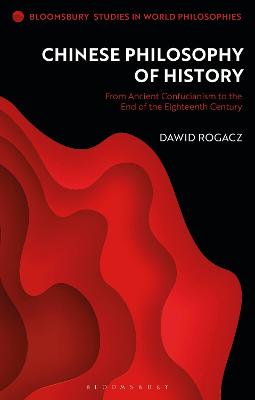Bloomsbury Studies in World Philosophies
1 total work
Challenging the Eurocentric misconception that the philosophy of history is a Western invention, this book reconstructs Chinese thought and offers the first systematic treatment of classical Chinese philosophy of history.
Dawid Rogacz charts the development from pre-imperial Confucian philosophy of history, the Warring States period and the Han dynasty through to the neo-Confucian philosophy of the Tang and Song era and finally to the Ming and Qing dynasties. Revealing underexplored areas of Chinese thought, he provides Western readers with new insight into original texts and the ideas of over 40 Chinese philosophers, including Mencius, Shang Yang, Dong Zhongshu, Wang Chong, Liu Zongyuan, Shao Yong, Li Zhi, Wang Fuzhi and Zhang Xuecheng. This vast interpretive body is compared with the main premises of Western philosophy of history in order to open new lines of inquiry and directions for comparative study.
Clarifying key ideas in the Chinese tradition that have been misrepresented or shoehorned to fit Western definitions, Rogacz offers an important reconsideration of how Chinese philosophers have understood history.
Dawid Rogacz charts the development from pre-imperial Confucian philosophy of history, the Warring States period and the Han dynasty through to the neo-Confucian philosophy of the Tang and Song era and finally to the Ming and Qing dynasties. Revealing underexplored areas of Chinese thought, he provides Western readers with new insight into original texts and the ideas of over 40 Chinese philosophers, including Mencius, Shang Yang, Dong Zhongshu, Wang Chong, Liu Zongyuan, Shao Yong, Li Zhi, Wang Fuzhi and Zhang Xuecheng. This vast interpretive body is compared with the main premises of Western philosophy of history in order to open new lines of inquiry and directions for comparative study.
Clarifying key ideas in the Chinese tradition that have been misrepresented or shoehorned to fit Western definitions, Rogacz offers an important reconsideration of how Chinese philosophers have understood history.
